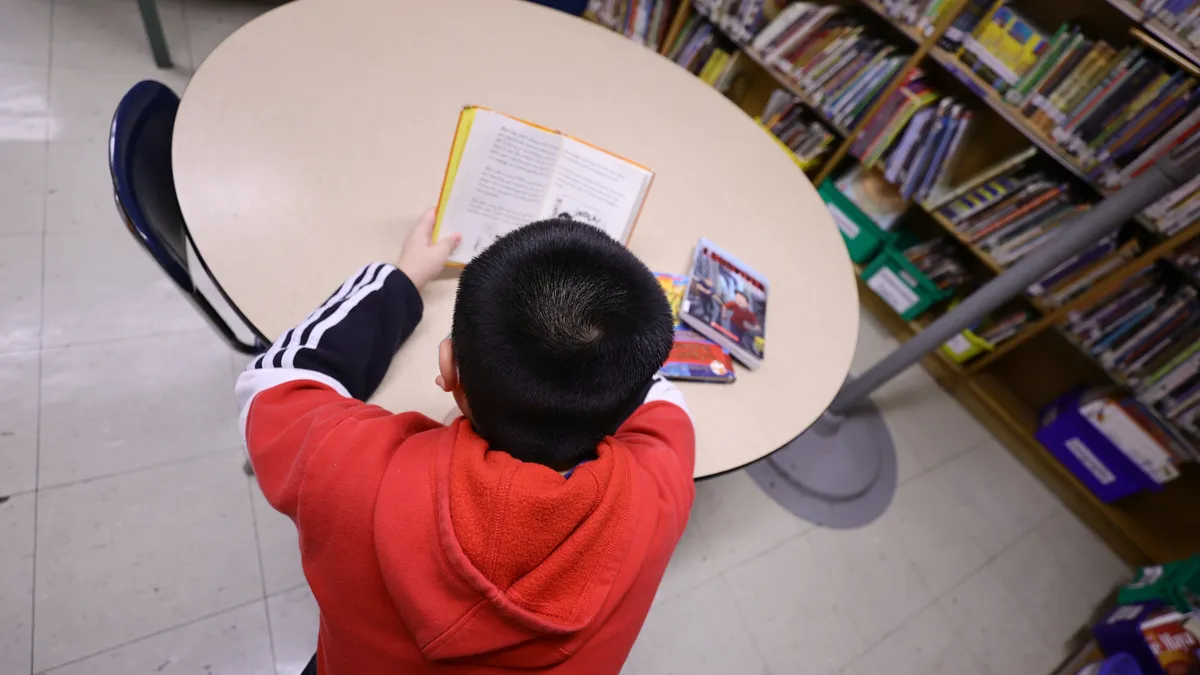Dive Brief:
-
Book bans reached a record high in the 2023-24 school year, with instances of both books banned and the number of unique titles banned almost tripling over the year before, according to a report released this month by Pen America, a free speech advocacy organization tracking the issue.
-
The group recorded 10,046 instances of banned books in the 2023-24 school year, compared to 3,362 the year prior.
-
As in previous years, the most commonly banned books included ones featuring characters of color or LGBTQ+ characters, as well as sex and sex-related topics. Florida and Iowa recorded the highest number of book bans during the 2023-24 school year.
Dive Insight:
Since July 2021, Pen America has counted 15,940 instances of individual books banned across 43 states and 415 public school districts overall.
News of the record high last school year comes as former President Donald Trump, who has railed against "inappropriate" content in schools, was elected to a second term in the Oval Office. In his first term, Trump issued an executive order pushing "local communities reasserting control of how children receive patriotic education in their schools."
The order was meant to challenge public school curricula that Trump said was "one-sided" and included "divisive accounts [that] too often ignore or fail to properly honor and recollect the great legacy of the American national experience."
The language of another of his executive orders that defined "divisive concepts" was nearly identical to a number of state laws restricting curriculum related to race and gender that followed in subsequent years.
In his 2024 election campaign, Trump called for cutting off federal funding to schools found to promote "critical race theory" and “other inappropriate racial, sexual, or political content.”
Since the end of Trump’s first term, Trump's home state of Florida has led the charge for such curricular laws and book bans, becoming one of the first states to pass both "anti-critical race theory" and "Don't Say Gay" laws by 2022.
Florida's policies, which have since spread to conservative states nationwide, expanded from initially curbing curriculum in lower grades to eventually covering curriculum for high schoolers as well. The laws led to such an influx of curriculum objections from community members that Florida lawmakers passed a bipartisan law meant to curb the number of complaints.
As of July 1, 2024, Florida districts can charge a fee to parents and residents who challenge six or more books or curricular materials per year.
In Iowa — which also saw a high number of book bans in 2023-24 — a sweeping anti-LGTBQ+ law has brought multiple high-profile lawsuits claiming it violates the First and 14th Amendments. Thousands of books have been removed because of the law, according to the American Civil Liberties Union's Iowa chapter and Lambda Legal, which filed lawsuits challenging the law's curriculum restrictions.
Prior to the law's Jan. 1, 2024, implementation date, a federal judge issued a preliminary injunction against its curriculum restrictions. However, the 8th U.S. Circuit Court of Appeals overturned that decision and sent it back to the lower court to consider in light of a legal precedent that had changed.
Last month, ACLU and Lambda Legal once again filed a request to temporarily block the law.
Such lawsuits are playing out in several conservative states, and education policy experts foresee the issue eventually landing at the U.S. Supreme Court.
Already, the high court is debating whether to take on a case related to curriculum opt-out policies. In that case,Maryland's Montgomery County Public Schools walked back its decision allowing parents to opt children out of reading books related to LGBTQ+ experiences beginning in the 2023-24 school year.
The group of Muslim, Christian and Jewish parents filing that case garnered the support of 24 conservative states that filed a friend-of-the-court brief with the Supreme Court last month. Those states include many that have curriculum restrictions — and resulting book bans — in place.







 Dive Awards
Dive Awards




